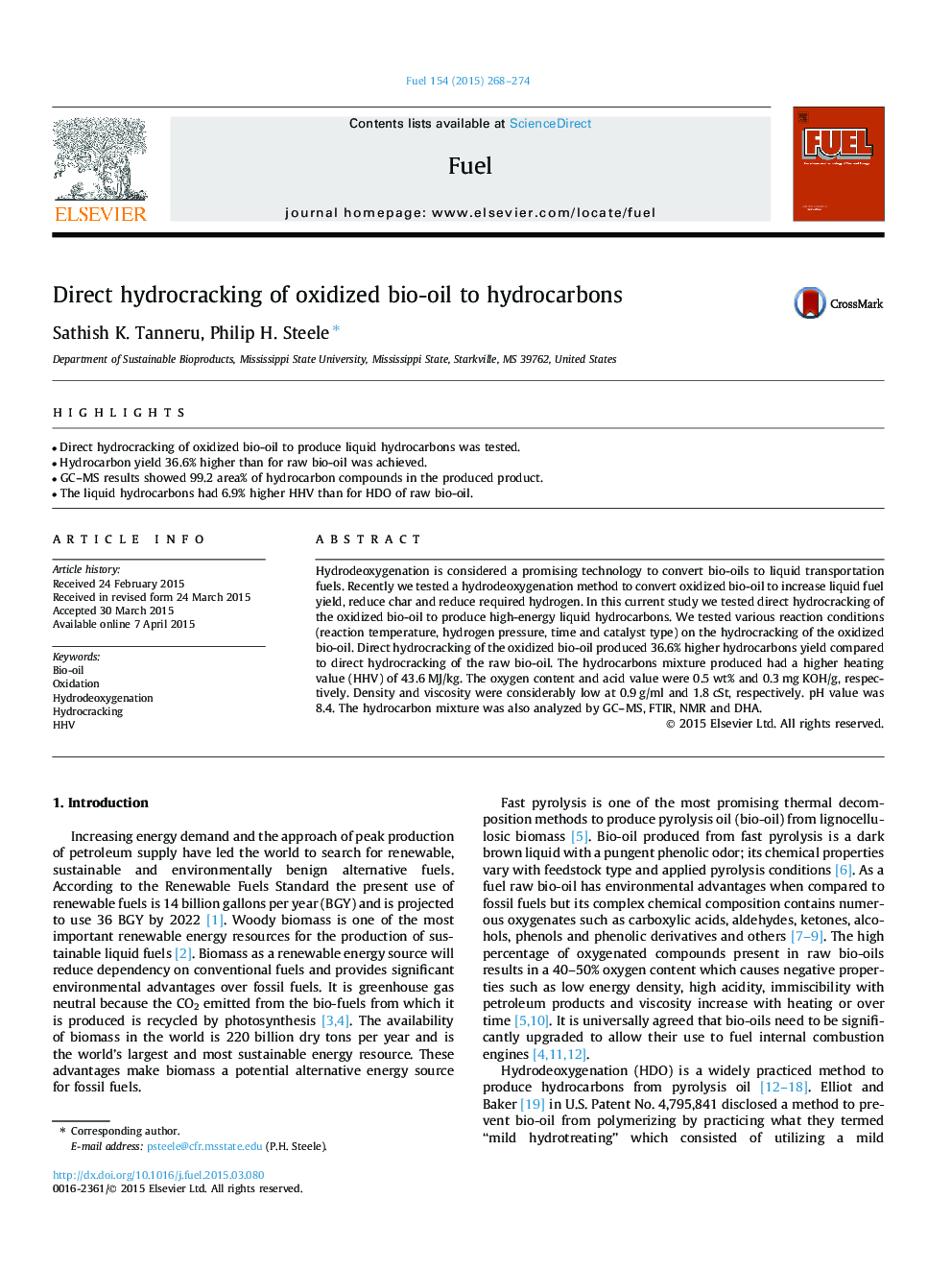| Article ID | Journal | Published Year | Pages | File Type |
|---|---|---|---|---|
| 6635479 | Fuel | 2015 | 7 Pages |
Abstract
Hydrodeoxygenation is considered a promising technology to convert bio-oils to liquid transportation fuels. Recently we tested a hydrodeoxygenation method to convert oxidized bio-oil to increase liquid fuel yield, reduce char and reduce required hydrogen. In this current study we tested direct hydrocracking of the oxidized bio-oil to produce high-energy liquid hydrocarbons. We tested various reaction conditions (reaction temperature, hydrogen pressure, time and catalyst type) on the hydrocracking of the oxidized bio-oil. Direct hydrocracking of the oxidized bio-oil produced 36.6% higher hydrocarbons yield compared to direct hydrocracking of the raw bio-oil. The hydrocarbons mixture produced had a higher heating value (HHV) of 43.6 MJ/kg. The oxygen content and acid value were 0.5 wt% and 0.3 mg KOH/g, respectively. Density and viscosity were considerably low at 0.9 g/ml and 1.8 cSt, respectively. pH value was 8.4. The hydrocarbon mixture was also analyzed by GC-MS, FTIR, NMR and DHA.
Related Topics
Physical Sciences and Engineering
Chemical Engineering
Chemical Engineering (General)
Authors
Sathish K. Tanneru, Philip H. Steele,
